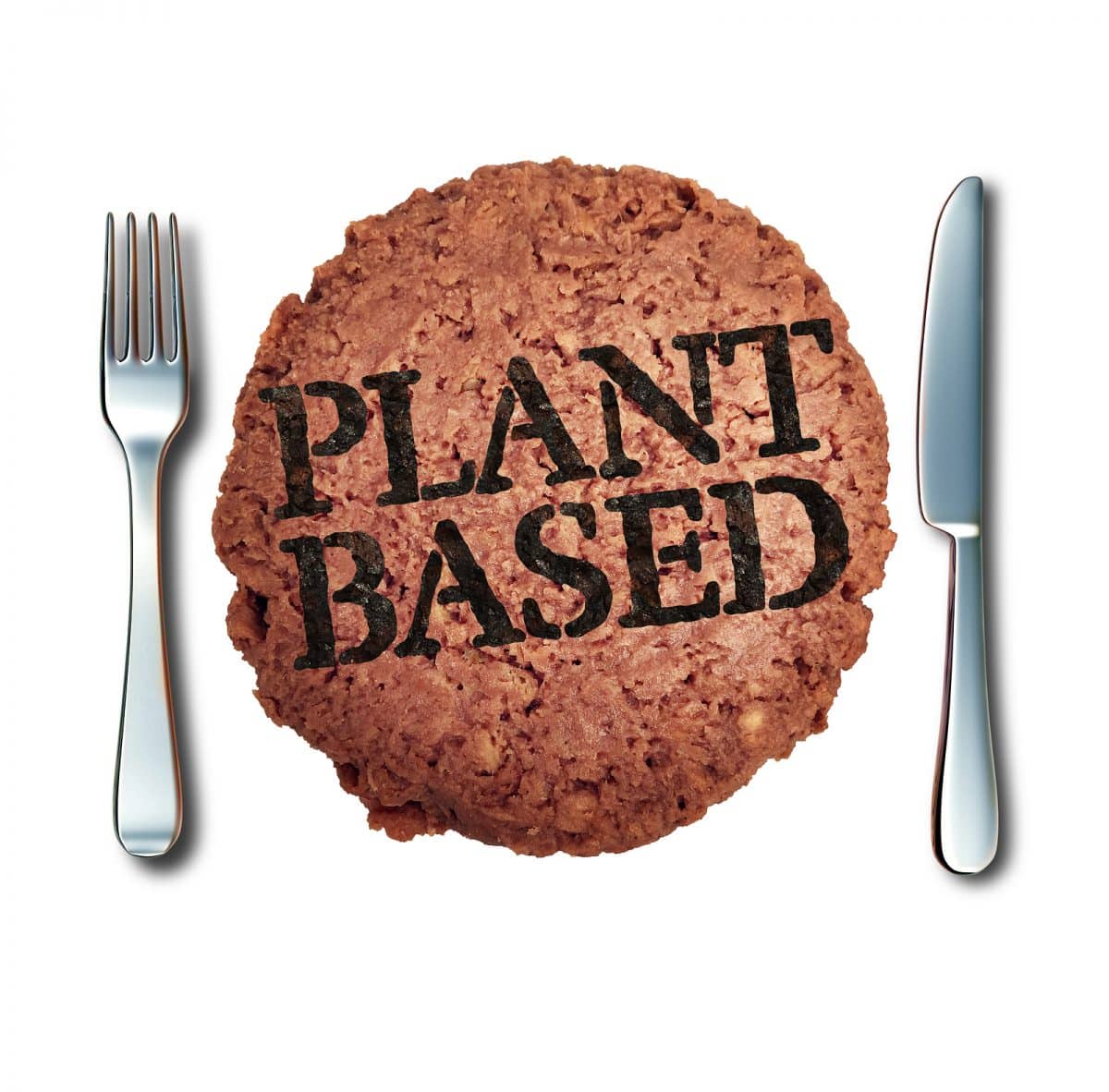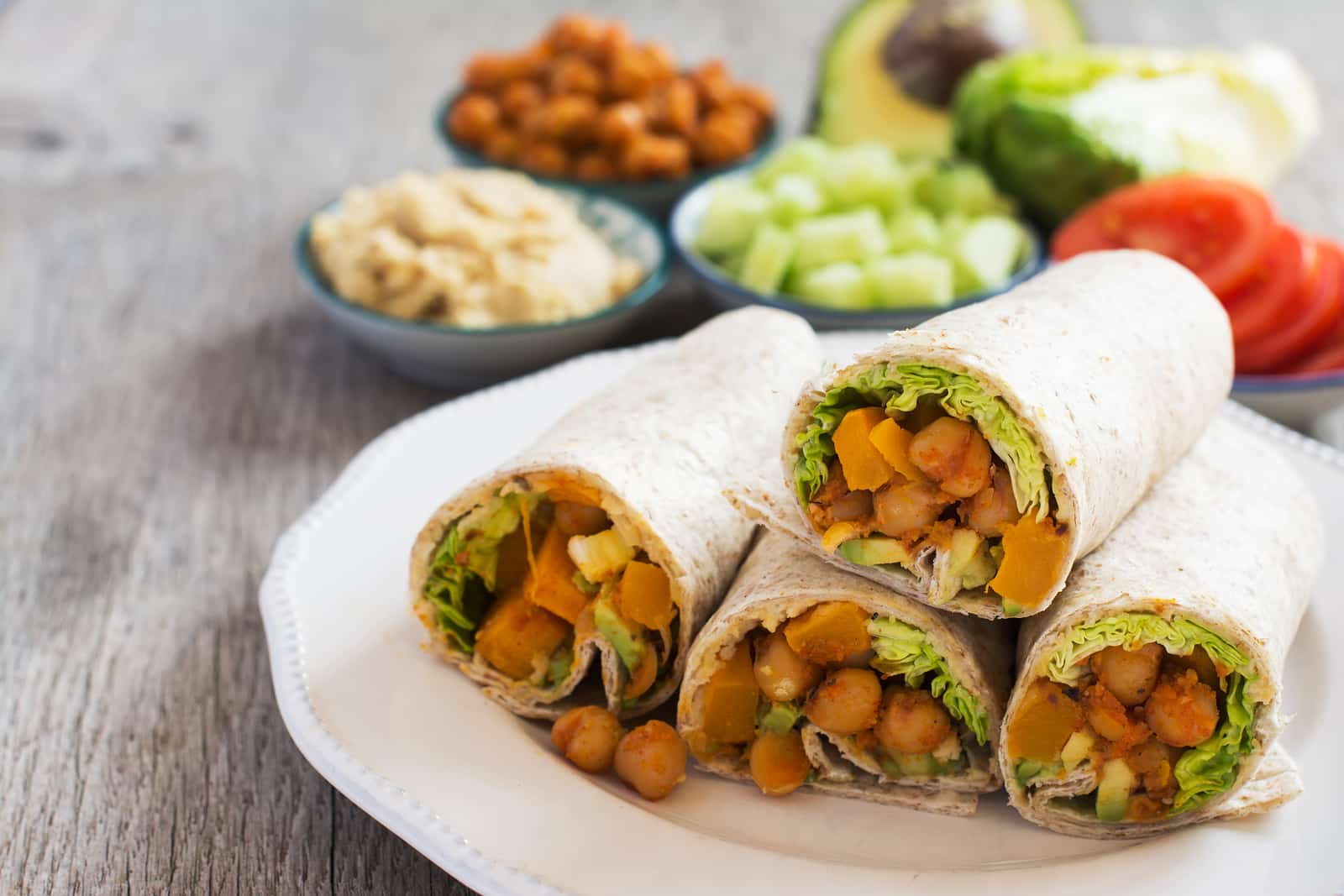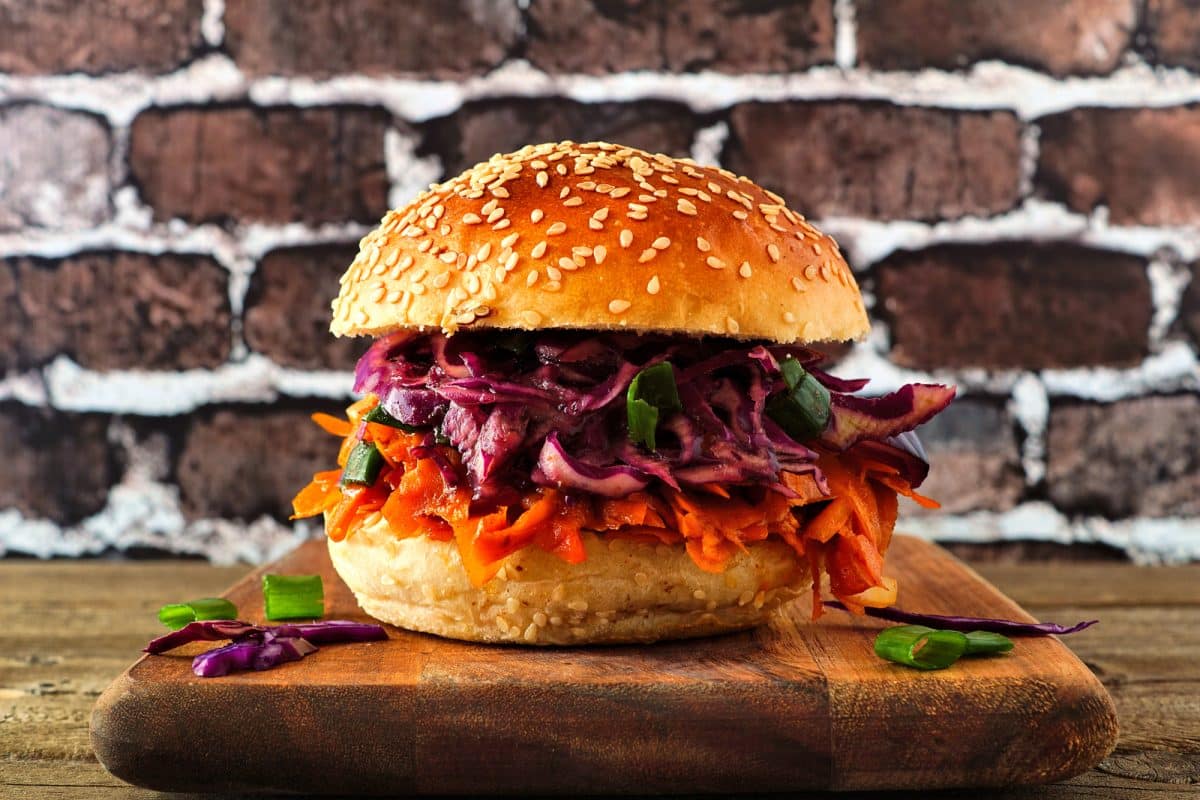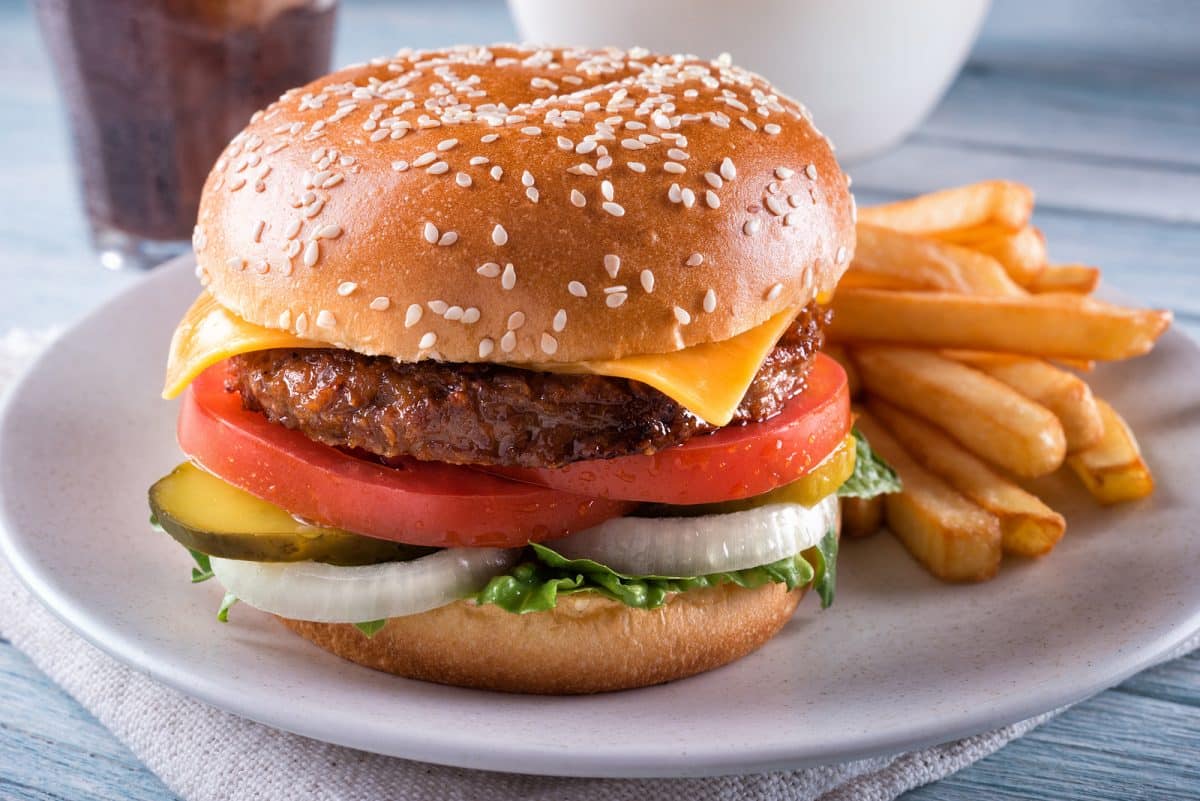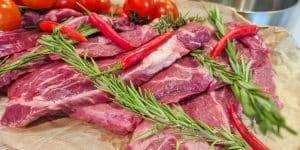Meat alternatives (also called meat analogs, meat substitutes, imitation meat or vegetarian meat) emulates the characteristics—such as chemical characteristics, flavor, and appearance—of specific types of meat. For the most part, meat alternatives are foods processed from vegetarian ingredients and, in some cases, without dairy products.
Most imitation meats are gluten-based or soy-based, such as tempeh and tofu. Today, many food analog manufacturers use pea protein which is a protein powder supplement extracted from Pisum sativum seeds. Traditionally, food manufacturers targeted vegetarians, vegans, those with faith-based dietary laws, and non-vegetarians looking to decrease their meat consumption.
Evidence Shows Meat Alternatives Might Not Be Healthy
Ever since their introduction, many consumers have felt distrust for processed foods of all kinds, especially meat alternatives. Vegetarians and vegans argue that—due to inhumane conditions and the use of growth hormones—meat from farmed animals possess more of a health risk to humans.

Additionally, organic meat (from animals free of antibiotics or growth hormones) prices remain relatively high compared to conventional meat products, since the supply for organic meats and other natural foods is much lower than the demand. This pushes consumers not wanting to eat commercial meat products to purchase cheaper alternatives, such as meat substitutes.
However, the question remains: how much healthier are meat alternatives? Well, the answer may shock some readers.
First of all, it should be noted that the debate over whether or not “fake meat” is healthy; each side has its points. With that said, how healthy or unhealthy one faux meat is or isn’t depends on which company you’re talking about, which means the ball lands in the court of the consumer to do their homework before buying into one brand or another.
And, as one Bloomberg article stated, the dispute continues to rage, along with public relations blitzkriegs from either side, so keep an open mind while making your final decision. With that said, let’s go over some of the evidence critics of companies such as Beyond Meat Inc.
Meat Alternatives: How They Are Made and Is There Something Better
In the article published by Bloomberg, Impossible Foods Incorporated and Beyond Meat Incorporated are the biggest darlings on Wall Street, with Beyond Meat stocks trading at “six times” its open price in May of this year. Its hit product, Beyond Burger, a burger notably comparable one made from pure ground beef, even turns brown when grilled or fried.
Enthusiasts of Beyond Burger patties see the product as ethical alternatives since cattle feces produces methane, a potent greenhouse gas. In addition to that, cattle ranching is said to be the reason behind the destruction of jungles in Central and South America. The number of naysayers who believe that switching to an entirely plant-based diet isn’t healthy for humans.
The Bloomberg article points out that, according to findings published in the Journal of the American Medical Association, though there exist some risks in eating a diet with lots of red meat, consumers should understand there are adverse health effects to eating an entirely plant-based diet as well. This is because such diets are full of “purified plant proteins” with not enough whole foods, which are a massive part of a balanced diet.
What Registered Dietitian Nutritionists Say About Beyond Burger
According to Business Insider, the Beyond Burger contains 22 ingredients:
Pea protein isolate, Expeller-pressed canola oil refined Coconut oil very high in saturated fat.
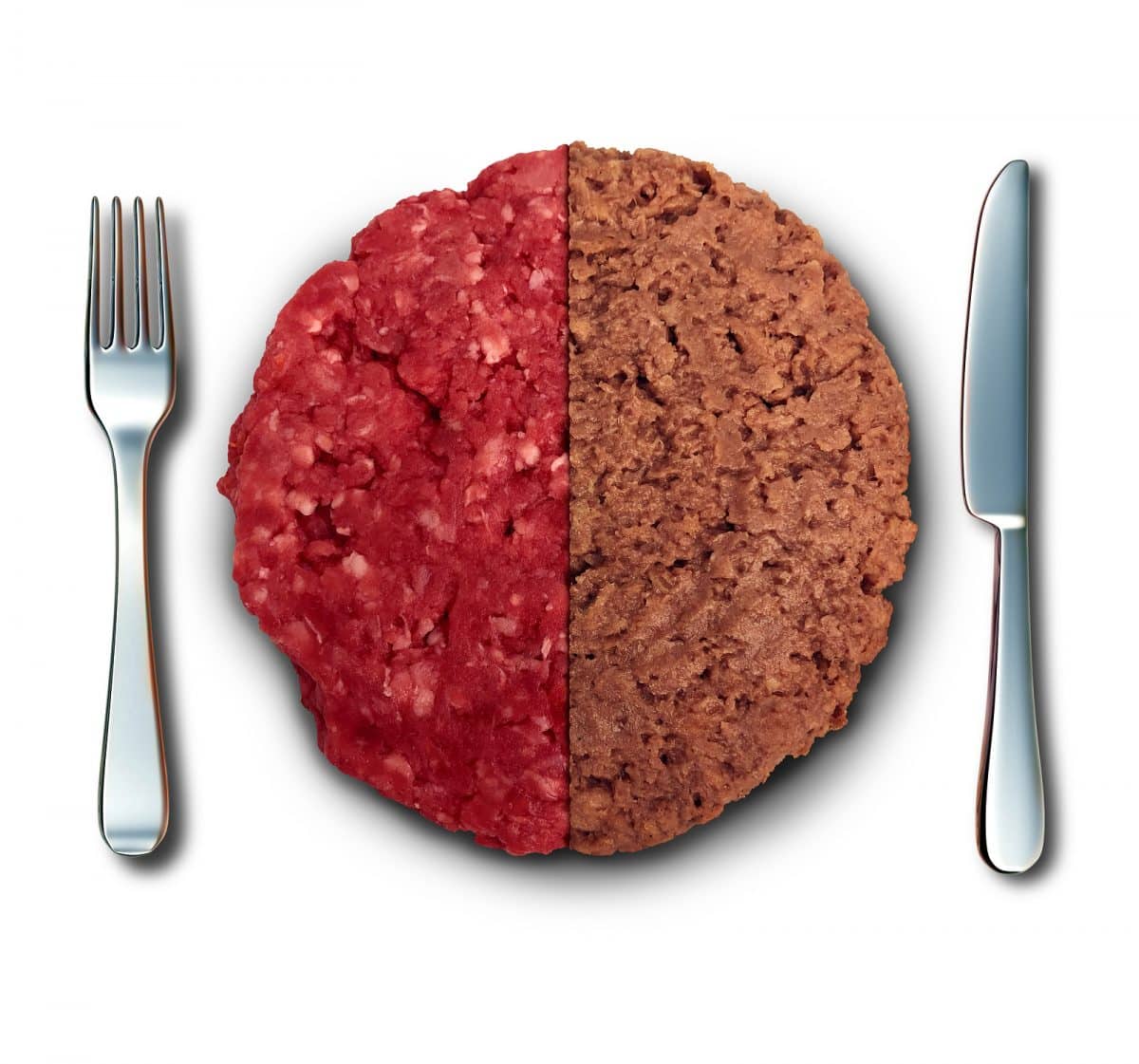
Beyond Burger contains two percent of the following ingredients or less:
- Cellulose from bamboo
- Annatto Modified food starch
- Methylcellulose Potato starch
- Natural flavor
- Maltodextrin Yeast extract
- Salt Ascorbic acid sunflower oil vegetable glycerin dries yeast
- Gum arabic
- Acetic acid
- Succinic acid
- Beet juice extract citrus extract
Beyond Meat stands behind its product, stating that Beyond Burger is one of the healthiest meat alternatives on the market. But what do registered dietitian nutritionists say about Beyond Burger?
It’s a reasonable question to ask when you consider that 11 restaurant chains have decided to offer Beyond Meat’s “bleeding” veggie burger and its plant-based “chicken” pattie. After so much consumer skepticism surrounding Beyond Meat’s products, nutritionists were asked to weigh in on the matter. According to them, the Beyond Burger (and the chicken pattie) is a “sometimes” food—which means it’s not healthy enough to supplement what actual meat provides.
Meat Alternatives For Vegetarians
If you’re technically not a vegetarian or someone who doesn’t eat meat for religious reasons, you might be looking for alternatives to a plant-based diet. Most nutritionists agree that organic meats are the healthiest options out there for those who don’t want to ingest growth hormones and other chemicals found in mass-produced meats.
Read more – Why Meatless Burgers Are Not That Healthy


